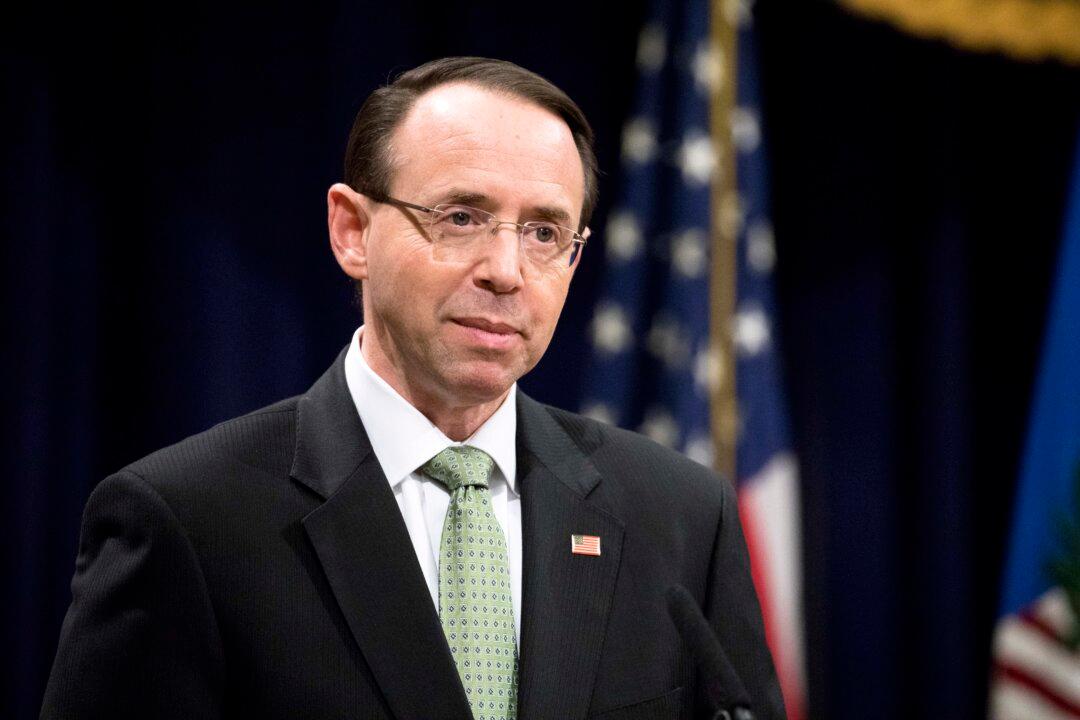A Trump-era deputy attorney general has weighed in on the Department of Justice’s appointment of a special counsel to lead two criminal probes into the former president, calling it a “discretionary decision” rather than an obvious necessity and saying he likely wouldn’t have done so.
Former Deputy Attorney General Rod Rosenstein, who appointed special counsel Robert Mueller to investigate Russian interference in the 2016 election, told CBS News in an interview that aired Sunday that, while he believes appointing Mueller was “the right thing to do,” he questioned whether this is the case with Attorney General Merrick Garland’s recent decision to appoint a special counsel to probe former President Donald Trump.





